In October 2021, Facebook changed its name to Meta. The new name reflects the company’s commitment to the “Metaverse”, which it considers to be the future of the internet. Since then, the tech giant has invested billions of dollars into this new project in an attempt to take control of the internet.
Here’s how Meta plans to control the future of the internet.
The rise of Facebook
As of 2021, Facebook was the biggest social media platform globally with more than 2.9 billion users worldwide. Roughly 37% of the world’s population uses Facebook.
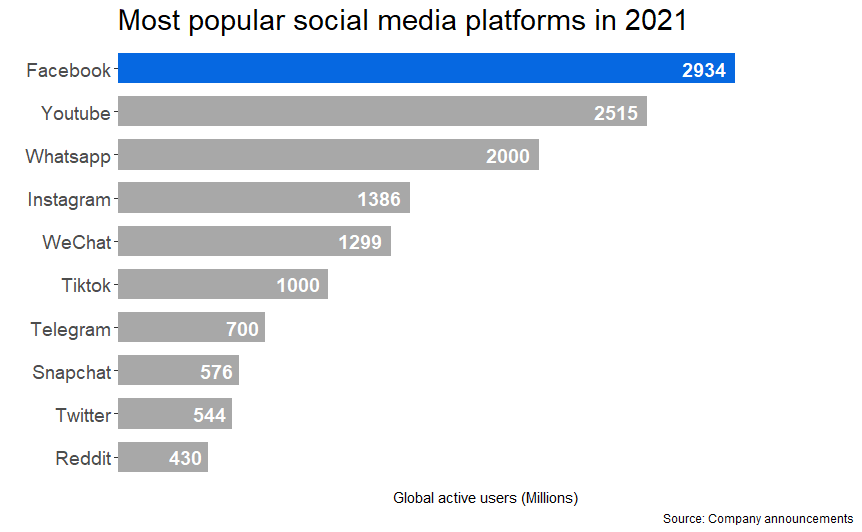
The social media platform dominated the early parts of the internet and its active users have been growing since launch.
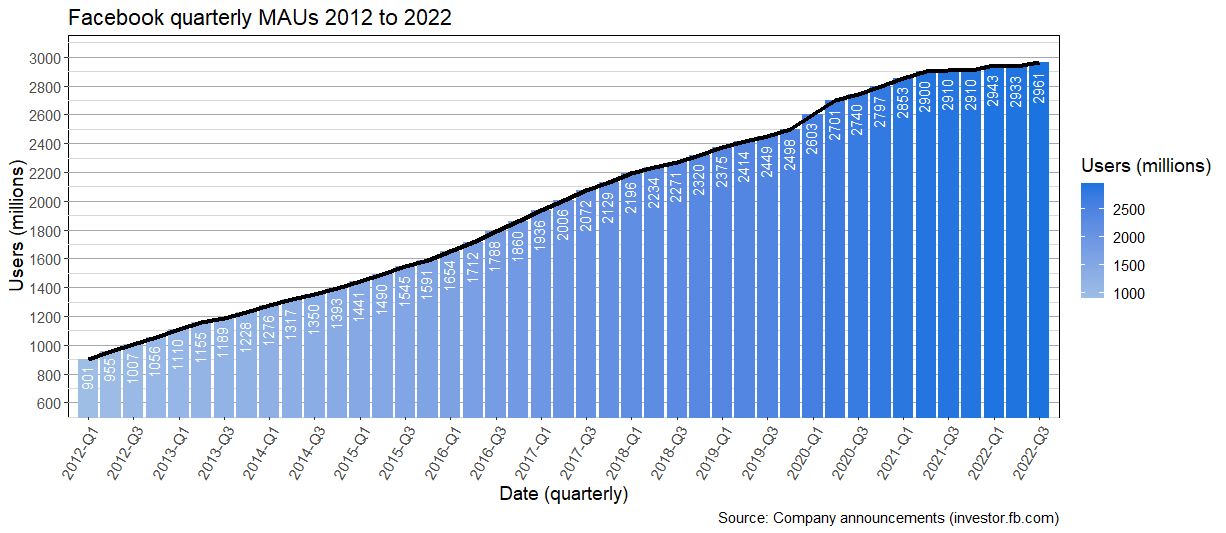
The graph above shows the platform’s quarterly MAUs (Monthly Active Users) between 2012 and 2022. At the end of 2021, the platform’s growth has flatlined for the first time in its history.
Has Facebook’s decline begun?
The fall of Facebook
In addition to a stunted growth, Meta’s stock market is down by over 60% in 2022. The company’s stock is tumbling, and it reached its lowest price since 2016 amid struggles to keep up against rising competition such as TikTok.
The animated graph below shows the stock prices of Meta, Microsoft, Apple, and Google. As you can see, only Meta’s prices have significantly fallen.
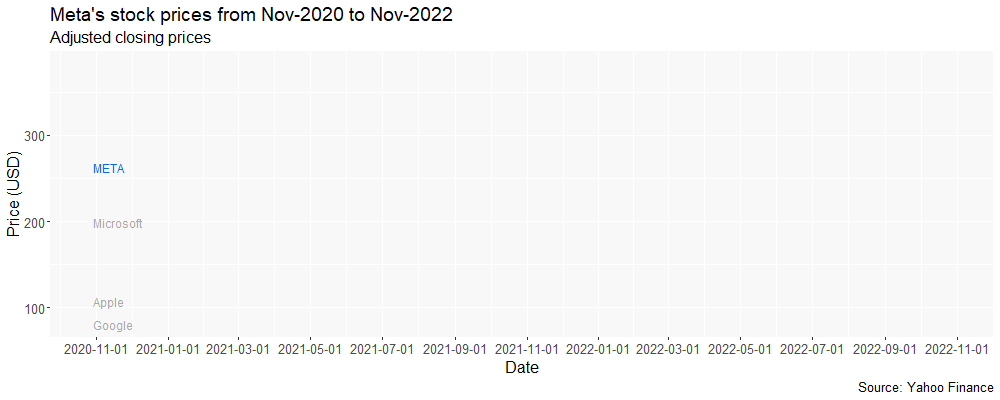
Additionally, Apple introduced an update to iOS in April 2021 which included a privacy change that negatively impacted Facebook’s revenue. In the update, Apple gave the option for the user to prevent advertisers from using their device ID.
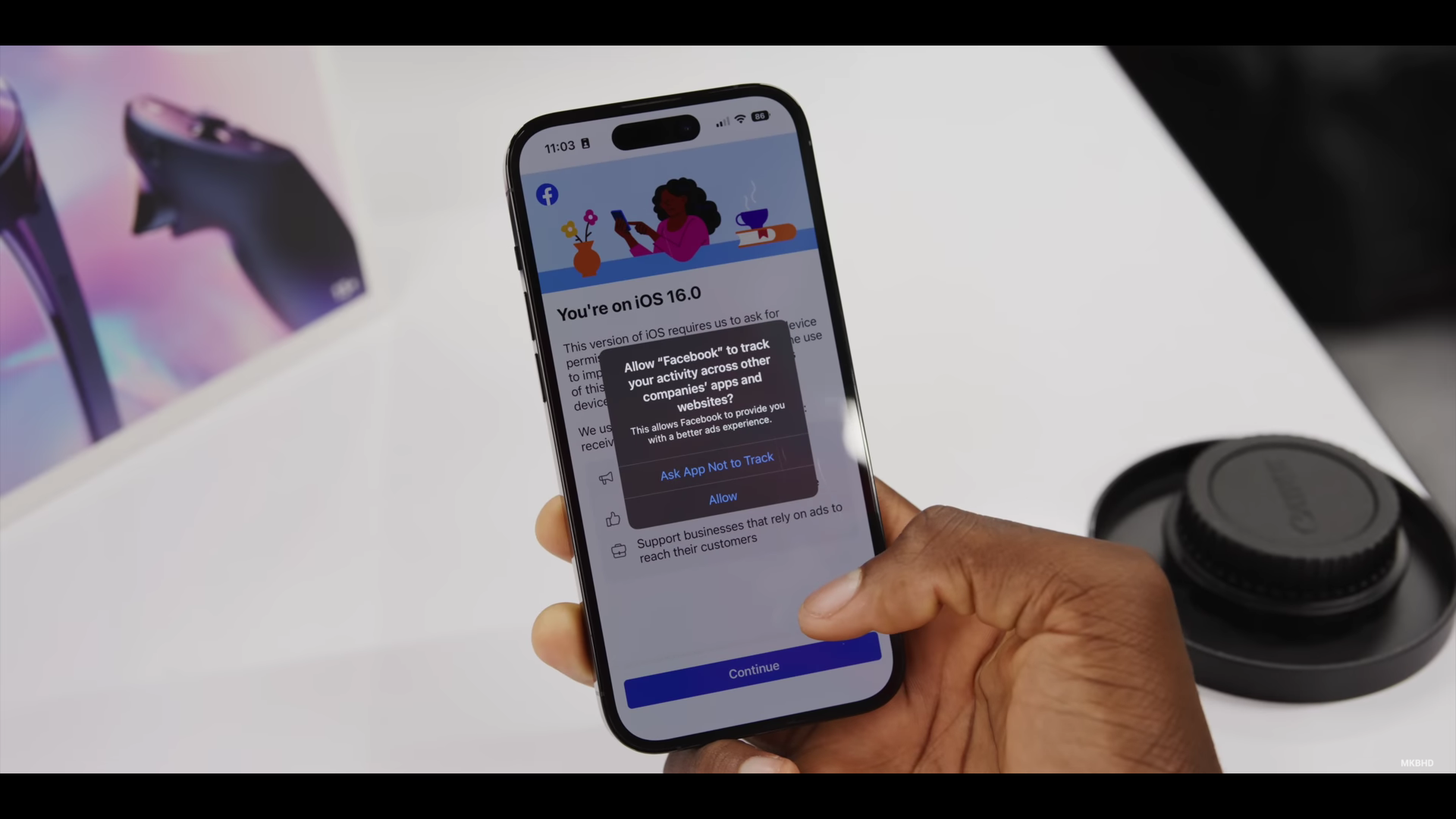
At its core, Facebook is an ads business as advertising makes up over 97% of its total revenue.

According to Meta, the iOS update would decrease the platform’s ads revenue by about $10 billion in 2022.
While Google also makes most of its revenue through ads, the iOS update didn’t quite affect it as much as Meta. Google still knows a lot about its users because they still manually type what they are looking for on Google.com.
As popular as Facebook is in 2022, they have clearly saturated the market and the platform’s inevitable fall has begun. Hence, the company decided to move to the next big thing: VR and AR.
The birth of Meta
In October 2021, Mark Zuckerberg announced Facebook would be renamed to Meta and introduced the company’s next mission: The Metaverse.
According to Meta, the future of the internet relies on two technologies that it believes will be widely used: VR (Virtual Reality) and AR (Augmented Reality). VR involves putting a headset and being completely immersed into a virtual world. While AR involves overlaying virtual things on top of the real world.
Although in its early stages, VR alone has generated $1.8 billion in the United States and $2.2 billion in China and nearly $12 billion worldwide in 2022 as you can see from the map below.
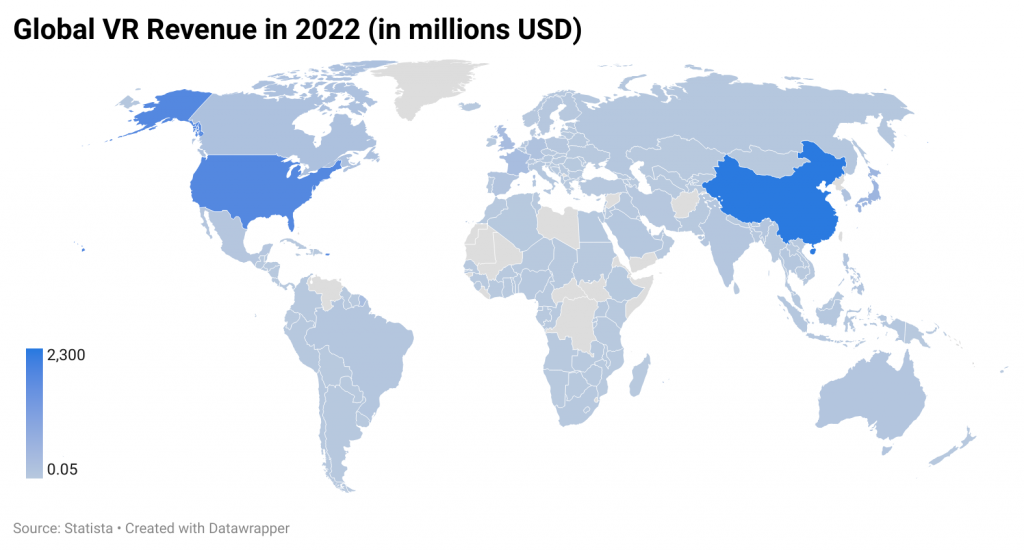
Combined, AR and VR have attracted more than 2.2 billion global users and it is estimated that 75% of the world’s population will be frequent AR users by 2025.
Oxford’s dictionary defines the Metaverse as « a virtual reality space in which users can interact with a computer-generated environment and other users ».
The digital space is already open for users to jump in:
- Looking to play games? There are some good games already in VR like the popular Among Us. With enough money invested into the ecosystem, Meta will be able to lure more developers to improve and make better VR games.
- Looking to make Zoom calls? The Metaverse offers an entire virtual meeting room experience. Users or co-workers are able to instantly make immersive meetings and video conferences and interact with each other.
Everything that can be done today on the internet, Meta will try to make it better in the Metaverse to captivate more users.
On the one hand, Meta has invested billions of dollars into this virtual world (Metaverse) in an effort to control the software side, including the ads which should account for a large amount in terms of revenue.
On the other hand, the tech giant is also planning to control the hardware side by developing VR headsets after it acquired Oculus VR in 2014. Its latest headset is the Meta Quest Pro.
It is currently dominating the VR and AR market as it captures 66% of the shipments market share through its Quest headsets as shown in the graph below.
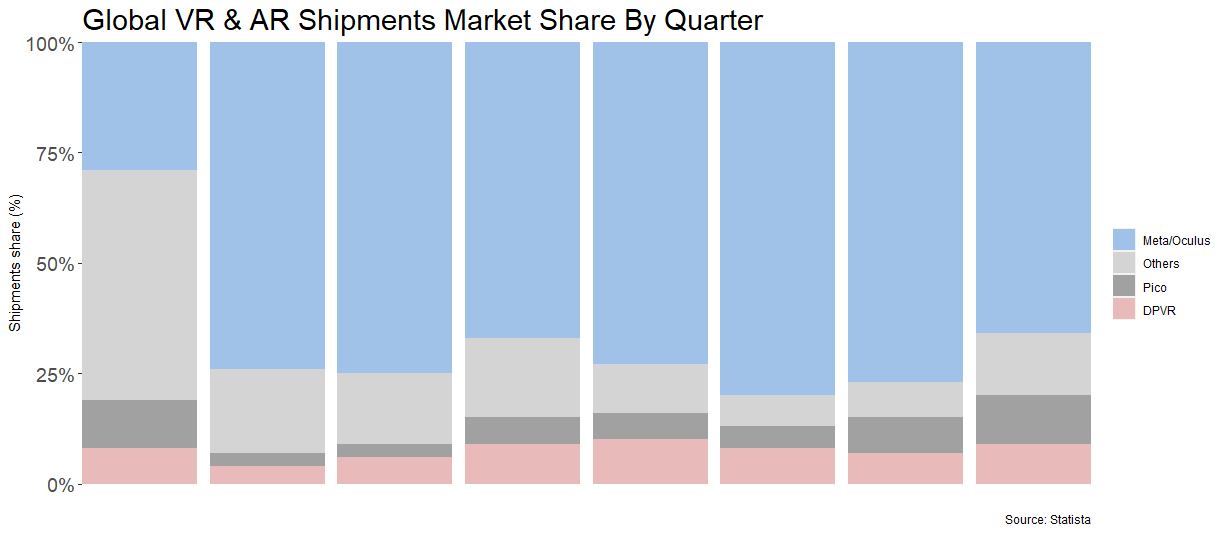
For these reasons, Meta has been working on the Metaverse that everyone will be part of through their VR headsets and considers it the foundation of the “2nd generation internet”.
Conclusion
In this article, we have talked about Meta’s plan to control the future of the internet by shifting focus from social media to the Metaverse which it believes is the pillars of the internet 2.0. The company is investing billions of dollars into this project in an attempt to control as much of the “VR future” as possible: software, hardware as well as ads. If they succeed, they will certainly regain the control and money they are after.
But this doesn’t stop us from asking: is this really the future of the internet?

I really liked the graph presenting the stock’s prices! Such an interesting topic nowadays, i’m always attracted to marketing topics!
I really liked the graph presenting the stock’s prices! Such an interesting topic nowadays, i’m always attracted to marketing topics!